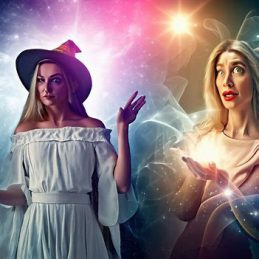Magical thinking is a cognitive process characterized by attributing cause and effect relationships to unrelated events and engaging in superstitious beliefs. While it may not necessarily fall under the category of pseudoscience, magical thinking shares some traits with pseudoscience. Here are a few pseudoscientific traits that can overlap with magical thinking:
1. Lack of empirical evidence: Pseudoscience often relies on anecdotal evidence or personal testimonials rather than rigorous scientific research. Similarly, magical thinking may be based on personal experiences or subjective interpretations of events rather than objective evidence.
2. Confirmation bias: Pseudoscience tends to selectively interpret and emphasize evidence that supports its claims while ignoring or dismissing contradictory data. Magical thinking may exhibit a similar bias by emphasizing coincidences or events that align with the desired outcome, while disregarding those that do not.
3. Ignoring alternative explanations: Pseudoscientific beliefs often fail to consider alternative explanations or engage in critical thinking. Magical thinking may disregard plausible explanations for events and instead attribute them to supernatural or magical causes without considering other possibilities.
4. Overreliance on tradition or authority: Pseudoscientific claims often appeal to tradition or authority figures rather than relying on scientific evidence. Similarly, magical thinking may place significant weight on cultural or traditional beliefs without critically evaluating their validity.
5. Lack of testability and falsifiability: Pseudoscientific claims often lack the ability to be tested through controlled experiments or fail to specify conditions under which they could be proven false. Magical thinking may involve beliefs or concepts that are difficult or impossible to test or falsify, making them unverifiable.
6. Exaggerated claims: Pseudoscience often makes extravagant or exaggerated claims that go beyond what is supported by evidence. Magical thinking may involve beliefs in supernatural abilities or events that defy the known laws of nature.

